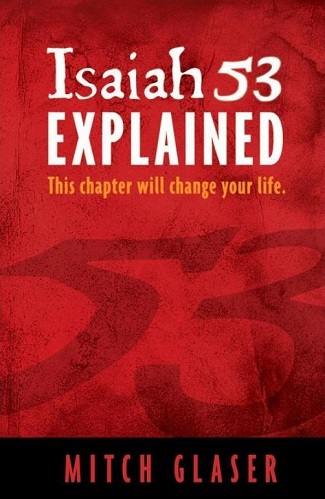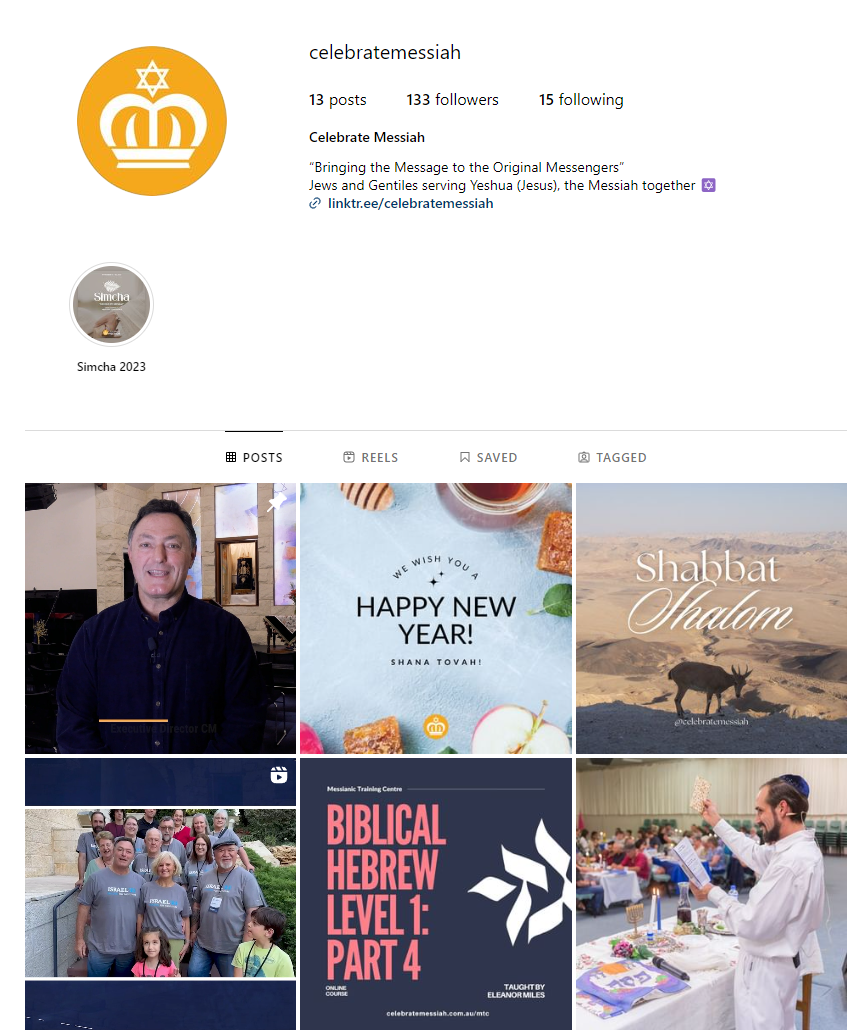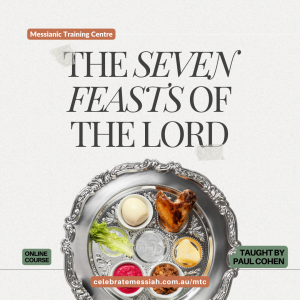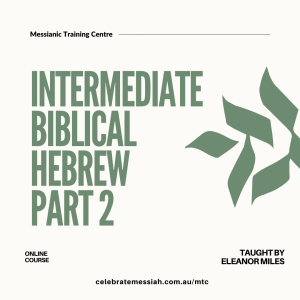How Can a Good God Allow Human Suffering?
Many think a good God would never allow people to suffer because suffering hurts, and a good God should alleviate pain. If removing pain is beneficial, and an all-good, all-powerful God exists, it would make sense for this God to eliminate all pain, right?
Religious and non-religious alike have posed this question. For some, it is the reason they abandon their beliefs. For others, this question is why they commit themselves more deeply to faith. Those who turn from faith see the matter as a logical argument either against the existence of a good and powerful God, against the existence of God at all, or both. They reject the idea of worshiping the God of the Bible in the face of excruciating suffering. Those who embrace biblical faith despite the existence of suffering, view the dilemma as resolved by the presence of a good and powerful God. They find peace and solace in following Him.
How do we reconcile these divergent views? One key could be to differentiate between suffering caused by moral failure and suffering caused by other reasons. However, no matter what the cause, pain and suffering are always emotional situations, which adds to the complexity of the problem.
Consequences of Moral Evil
Some suffer because of moral evils like theft, murder, and rape. Yet, people also suffer from cancer, miscarriages, and hurricanes destroying homes. Moral evil is when humans intentionally cause suffering. However, not all suffering is the result of moral evil.
Sometimes, when we consider the problem of evil and suffering, our own experiences can easily blind our hearts and bend our logic. So often, we cannot find the reasons for our suffering or the pain of a loved one. We seek comfort in the answers but find little help making suffering sensible.
Maybe suffering causes us to run from God when we should consider running toward Him instead. Divine help and wisdom are always available by simply reading the Bible. The Psalms have long comforted those who have faith in God and those who do not. The psalmist’s words eloquently mirror our pain and lead us to a God who identifies with our suffering. Knowing this often provides some relief from the loneliness of suffering. We are not alone!
The Intellectual Problem
The Bible and our shared experiences indicate God created humans with self-determination: the ability to choose and perform evil acts. Those choices are ours. Our poor decisions do not stain the One who made us. For example, two virtuous parents can give birth to a child who becomes a murderer, but the child’s evil acts do not mean the two righteous parents are not virtuous.
Why would God create humans and permit them to do evil deeds? It could be because God also wants us to experience love. Love, by definition, can only be freely given. No one can program a robot to love genuinely. No one can force someone to love another person. Love must be a freely chosen decision. Since love cannot be compelled, human beings must have the freedom of choice to experience it.
We should also reconsider whether God abolishing all moral evil is desirable. Choice is a significant theme in the Hebrew Scriptures. If God were to take away the possibility of making the wrong choice, making the right choice is no longer a choice at all. The Bible considers the consequences of bad choices when we are told, “I have set before you today life and prosperity, and death and adversity” (Deuteronomy 30:15). Yet, God still tells us to “choose life in order that you may live” (Deut 30:19). He gives us the ability to choose so we can choose to love.
Suffering and the Existence of God
Now, regarding the problem of suffering not caused by the evil of others, we must ask if human suffering and the existence of a good God are mutually exclusive. Can we show how human suffering does not necessarily negate the existence of an all-good and all-powerful God? Is it possible to show how suffering can produce good?
It is understandably challenging to see how good might come from suffering while we are still going through it. As a result of our circumstances, we may see suffering as an argument against God’s existence or His goodness. We can be prone to viewing suffering as always evil. But if we can show how the experience of suffering might produce something more meaningful than the suffering itself, it might produce the very solace those hurting are seeking. Discovering faith in the midst of suffering takes reflection and courage, especially when you may not have been brought up in a home where God was part of your everyday life. Sometimes, we simply need to see the good suffering can produce when viewed through the eyes of faith.
Good Can Arise from Suffering
We have all experienced temporary pain, especially physical pain, producing some good, including necessary surgery, physical exercise, or a dental visit. Emotional discomfort can also lead to good results when we, for example, forgive someone. Pain and suffering do have obvious benefits at times.
If suffering were inherently incompatible with goodness, then there would not be any benefit from these sources of pain. However, we know this is not the case.
Not only can these discomforts produce positive outcomes, but they may also prevent greater suffering later. The pain endured following heart surgery is inconsequential compared to dying without the surgery. Pain experienced when exercising sometimes helps prevent future injury and sickness. The uncomfortable interactions we endure when apologising and forgiving, sustain relationships and families. Persevering through suffering can sometimes prevent greater suffering later on.
When Suffering Seems Pointless
What about pointless and involuntary suffering?
It is impossible to know precisely why we or our loved ones suffer outside of some obvious physical ailment or disease. We may never find the key to unlock the door to those unfathomably dark moments of personal suffering. The reasons for suffering often remain mysterious.
We often live with doubt, uncertainty, and the temptation to declare life’s greatest struggles meaningless. But we must fight these temptations. Faith while suffering is a much healthier response to our painful situation than logic and an over-analysis of what, in all probability, will remain shrouded in mist. We are the created — not the Creator — and therefore, we do not know everything, even about ourselves. We need to look to One who is above and beyond ourselves and has greater wisdom, understanding, and power than we do.
In the New Testament, the great Messianic Rabbi Saul (the apostle Paul) cried out in one of his letters, “God causes all things to work together for good to those who love God, to those who are called according to His purpose” (Romans 8:28). As difficult as it may be to believe, the Scriptures encourage us to trust God and seek His presence for the healing of our souls during times of suffering. He has a greater purpose for our pain than we realise. As the Hebrew prophet Isaiah wrote, “‘For My thoughts are not your thoughts, nor are your ways My ways,’ declares the Lord. ‘For as the heavens are higher than the earth, so are My ways higher than your ways and My thoughts than your thoughts’” (Isa 55:8–9).
The Ultimate End of Suffering
Still, it is fair to say, “If an all-good and all-powerful God exists and suffering exists, then God should provide a solution to my suffering.” According to the Scriptures, God is our rescuer and redeemer. So much suffering in this world arises from human failure, which the Hebrew Scriptures call “sin” — my sin, your sin, others’ sin — and even our collective sin. Thankfully for us, God provides a way for our sins to be forgiven (Jeremiah 31:34) and for us to be transformed and begin the long process of being remade in His likeness—spiritually, morally . . . and from the inside out.
As predicted by Isaiah,
But He was pierced through for our transgressions, He was crushed for our iniquities; the chastening for our well-being fell upon Him, and by His scourging we are healed. All of us like sheep have gone astray, each of us has turned to his own way; but the Lord has caused the iniquity of us all to fall on Him. (Isa 53:5–6)
This prediction of a suffering Messiah who bore the sins of the world was fulfilled in Jesus the Messiah. He is the ultimate example of meaningful suffering as His death and resurrection provide forgiveness for the sins of all humanity—both Jews and Gentiles—by faith. If we submit our lives to Him, Yeshua also invites us to become like Him: someone who brings comfort and compassion to others experiencing suffering, enabling us to show God’s love to those who are suffering. We await His return, when He will wipe away every tear, and suffering will be no more. What joy awaits those who follow Him!
The Hope for Healing

Illness is often the source of our deepest suffering. You might be suffering from a challenging disease right now, or you might be agonising over a loved one’s illness. Perhaps your spouse, child, or grandchild is enduring a disruptive or life-threatening ailment.
You might ask yourself, “Where is God in the midst of this seemingly endless suffering?” Or you might be inquiring how God could love us and our loved ones but allow them to endure such suffering. You might wonder whether He even cares to notice what we are going through.
These times of deep suffering often cause us to turn to God and ask for His divine help, even when we might not otherwise believe in Him. We may run out of human answers and finally recognise the weakness of the human body and soul. We might even resist coming to this moment. But when we are most helpless, we find the help we always need. At our lowest points, we are ready to be elevated by God Himself. Suffering leads us to search for answers beyond this life, which might be the most positive outcome of our pain.
Yet, it is not easy to climb beyond our pain and suffering to find God. Where can we find divine help, and when can we finally recognise we need Him?
Healing in Judaism
Traditional Judaism offers a series of special prayers for healing to help those suffering from illness and those caring for them to connect with God. Turning to the Holy One of Israel seems to be the only way to find healing when hopeless. Here is one of those traditional prayers for healing:
May the One who blessed our ancestors — Patriarchs Abraham, Isaac, and Jacob, Matriarchs Sarah, Rebecca, Rachel, and Leah — bless and heal the one who is ill: [fill in the name of the one who is sick]. May the Holy Blessed One overflow with compassion upon him/her, to restore him/her, to heal him/her, to strengthen him/her, to enliven him/her. The One will send him/her, speedily, a complete healing — healing of the soul and healing of the body — along with all the ill, among the people of Israel and all humankind, soon, speedily, without delay, and let us all say: Amen!1
Understanding God as a healer is usually an essential element of various faiths and religions, including Judaism. Immediately following the miracle at the Red Sea, God told the children of Israel, “I, the Lord, am your healer” (Exodus 15:26). Whether the healer be God directly or the healing process includes a rabbi or even a medical professional, healing comes from God.
Still, it is common for God to heal through selected individuals. Faith healers may have left a bad taste in our mouths for supernatural healing, and we certainly need to be careful with professed healers. However, God can and does heal at times through specific individuals.
Disappointment When Left Unhealed
Sometimes, God chooses to withhold healing for His own reasons, whether we appeal to Him directly or look toward a “human instrument” for help. We then face the dilemma of believing God cannot heal or, for some mysterious divine purpose, does not want to heal us or our loved ones, which can quickly deepen our disappointment. The hope for healing has left many who were not healed discouraged and despondent and, in some ways, worse off than before: spiritually, emotionally, and physically.
Discouragement can also occur when we depend upon modern medicine and well-intentioned medical professionals. Doctors may offer the hope of healing, yet sometimes, the treatment they suggest might not work. You may have prayed or been prayed for but were not healed. Perhaps you have gone to the best doctors to handle your condition yet still suffer from an illness. Hoping in the face of disappointment is a fierce battle of the soul.
Light in the Darkness of Pain
Finding hope and meaning in suffering is possible even if the healing you seek does not come. Maybe the absence of God’s healing for yourself or your loved ones is the very experience meant to bring about the healing of your soul, which leads to a faith more powerful than the pain of your illness.
Job finally figured out the way forward in the face of his incredible losses. He famously wrote:
As for me, I know that my Redeemer lives, and at the last He will take His stand on the earth. Even after my skin is destroyed, yet from my flesh I shall see God; whom I myself shall behold, and whom my eyes will see and not another. (Job 19:25–27)
Despite all he had been through, Job held fast to the truth of God’s presence in his life and a future resurrection!
Here is one real-life story:
As a Jewish follower of Yeshua (Jesus), the Messiah, I found comfort in the healing power of my Savior, though I continue to grapple with a chronic illness. He loves us and heals us when we call out to Him in faith. The healing may not always be in the way or to the degree we want, but I can assure you, when you experience His love and power, you will be changed and healed in ways you might not expect! He loves us and is compassionate to all. In the Gospels (the record of Yeshua’s life in the New Testament), we gain insight into Messiah’s compassion on those who were suffering:
“Yeshua was going through all the cities and villages, teaching in their synagogues and proclaiming the gospel of the kingdom, and healing every kind of disease and every kind of sickness. Seeing the people, He felt compassion for them, because they were distressed and dispirited like sheep without a shepherd” (Matthew 9:35–36, emphasis added).
We can have a deep and personal relationship with a Messiah who is filled with compassion and love for us. When we know His character, He brings about a far deeper healing than we expect.
The Hope for Resurrection
While this life may offer many challenges, eventually, God will bring a fullness of healing and the raising of the dead. The Amidah prayer, a regular part of Jewish worship, declares God can raise the dead:
Lord, You are mighty forever. You call the dead to life. . . . Lord of might, Who is like You? King, Who can be compared to You? You decree death and restore life, causing salvation to come forth. You are faithful to revive the dead. Blessed are You, Lord, Who calls the dead to life.2
This beautiful prayer, which Jewish people have recited for centuries, expresses our corporate belief God can raise the dead. Hope for resurrection is fundamental in traditional Judaism.
According to Judaism and the Bible, this ultimate act of healing involves the promised Messiah of Israel. We know the One who raises the dead is the same One who heals us from all our diseases. Yeshua bore the suffering of humanity as the prophet Isaiah predicted (chapter 53:3–8). This prophet also spoke of promise for healing: “But He was pierced through for our transgressions, He was crushed for our iniquities; the chastening for our well-being fell upon Him, and by His scourging we are healed” (Isaiah 53:5). He paid the penalty of death for our sins with His life so death will not be the end for you and me. The hope of healing is tied to His resurrection from the dead.
One day, even if we live this life suffering from illness, and even if the sickness one day takes our life or the life of our loved one, we do not need to despair. The healing we seek in this life may not always be possible, but we who are united with the Messiah have a sure promise of complete healing in the age to come. Yeshua rose from the dead, conquering disease and death. Our future is filled with health and wholeness because of the death and resurrection of Yeshua.
We can have this assurance if we believe that Yeshua is the promised Messiah of Israel and that He died and rose from the dead to heal all our physical and spiritual illnesses.
A Final Thought
How does faith in Yeshua impact our suffering today? The Bible teaches us Yeshua’s resurrection is the bedrock upon which faith and hope for the future is built. He conquered death and rose from the dead (1 Corinthians 15:20; cf. Ezekiel 37:1–14). God promises eventual total healing and restoration through the Messiah (Isaiah 30:26, 33:24, 35:1–2, 10, 65:17–19).
Maybe your personal pain is driving you to seek answers and find healing for the sickness of body or soul. A belief in the God who created you is an all-important part of your healing. Suffering without God and without divine help can easily lead to hopelessness. Maybe you find yourself despondent about the circumstances of your life and are searching for hope in the midst of suffering. Turn to Yeshua, and you will find His shalom (wholeness) in your suffering. This step might very well be the first in your journey to find healing through the power of God.
1 Simkha Y. Weintraub, “Jewish Prayer for the Sick: Mi Sheberach,” My Jewish Learning, accessed
August 29, 2023, https://www.myjewishlearning.com/article/mi-sheberakh-may-the-one-who-blessed/.
2 Barry A. Budoff, A Messianic Jewish Siddur for Shabbat, (Skokie, IL: Devar Emet Messianic Publications, 2011), 35.
Why, God, Why?
“Why, God, why? The pain is more than I can bear!”
Almost everyone has asked the question about why we suffer. But is there an answer to this heartfelt question? Many well-known people from the Bible have even asked the question, including Jonah and King David. Perhaps the Bible also has the answer. Let us examine where the Scriptures take us on our journey toward an answer to this ageless question.
Starting at the beginning, Genesis (Bereshit in Hebrew) chapter 1 describes an all-powerful God who made the heavens and earth. He also created the animals, plants, and humankind, declaring all He had made to be good! “God saw all that He had made, and behold, it was very good” (Genesis 1:31).
The first humans, Adam and Eve, lived a tranquil life in the garden of Eden. God gave them only one restriction: not to eat the fruit from the tree of the knowledge of good and evil (Genesis 2:17). However, though His command was simple, Adam and Eve disobeyed God and ate from the tree. This initial act of disobedience to God is at the heart of what causes human suffering and death. These parents of all humanity were exiled from the garden of Eden, cut off from the tree of life, began aging, and eventually died.
History compounds the effects of this first act of disobedience. Throughout the millennia, various types of evil – including war, famine, slavery, and every form of abuse – resulted from the corruption of humanity, which God initially created as very good. Today, when humankind continues to follow a path of disobedience toward God, what follows are personal and societal ills, which may be part of the answer to the question, “Why are we suffering?”
The Bible reveals the root cause of all our suffering and its inevitability. However, it also tells us how to benefit from what we will invariably encounter during our lives. Nobody is exempt from it, not even those we consider righteous and just. Job was a man in the Hebrew Scriptures who was “blameless, upright, fearing God and turning away from evil” (Job 1:1) yet suffered tremendously! Suffering is part of life, yet there is a way to persevere through suffering to enhance and bring deeper meaning to our lives.
Joseph and the Benefits of Suffering
Many stories and historical accounts in the Bible are helpful in our search to find the meaning and purpose of life amid suffering. We believe the account in the Torah about Joseph, one of the twelve sons of Jacob, to be a true story filled with profound truths for those willing to reflect upon them.
You may remember the story of Joseph from Hebrew school, Sunday school, or elsewhere. Joseph’s eleven brothers were jealous of him, threw him into a pit to die, and then decided to sell him to Egyptian traders for twenty shekels of silver. They lied to their father, Jacob, saying wild animals killed Joseph. Their treachery caused intense suffering for Joseph, for Joseph’s full brother, Benjamin, and for their father.
Joseph suffered, and as the story unfolds, we learn he suffered unjustly. Yet, God used Joseph’s suffering for a greater good. How often have you looked to heaven or a close friend or family member with tears, asking what you may have done to deserve the pain and anguish of suffering?
Joseph was taken to Egypt and sold to Potiphar, the captain of Pharaoh’s guard. Joseph refused to dishonour his master by giving in to the sexual advances of Potiphar’s wife and ran from her instead. Enraged by the rejection, Potiphar’s wife falsely charged Joseph with assault. As a result, he was thrown in jail (Genesis 39). Joseph did not know God would use his suffering to relieve the suffering of a nation.
Suffering usually brings us to a very dark place where we are afflicted by acute agony; all we can think about is relieving the pain. Although we are often unable to see God’s purposes amid suffering, we might be able to see God’s hand of mercy in the aftermath. Joseph did not realise the good brought about by his trials until many years after the pit and jail time. Although we may not recognise it right away, God allows our perseverance through difficult circumstances – generally brought on by bad human choices, like those of Joseph’s brothers and Potiphar’s wife – to be a great source of encouragement for others.
Following two years in prison, Joseph was elevated to second-in-command to Pharoah after successfully interpreting Pharoah’s dreams, which predicted seven years of prosperity followed by seven years of famine. As second-in-command, Joseph ordered the stockpiling of food during the years of prosperity to prepare for the years of famine. When the famine arrived, Joseph controlled food distribution for those in need, eventually including his brothers from Canaan (Israel)! God used Joseph to save the lives of his people!
An Encounter with His Brothers
Joseph’s brothers came to him, asking for food to feed their families during the famine. At first, they did not recognise him. Once Joseph revealed his identity, the brothers were shocked. Joseph forgave them for selling him to the slave traders and provided them with enough food to feed their families.
If it were not for Joseph, the nation of Israel and countless other families would have starved to death. Joseph proclaimed to his brothers, “As for you, you meant evil against me, but God meant it for good in order to bring about this present result, to preserve many people alive” (Genesis 50:20). God used Joseph’s terrible suffering to save not only His chosen people Israel but many nations too!
A Portrait of the Suffering Messiah
As is often the case, what happens in the Tanakh – the Hebrew Scriptures – may be a prophetic portrait of the life and experience of the Messiah. Jesus (Yeshua, in Hebrew) lived a life serving others, providing physical and spiritual nourishment for those who were hungry and in great need. His own Jewish brothers and sisters broadly did not recognise him as the Messiah. Yeshua suffered betrayal by a close companion for thirty pieces of silver and experienced an excruciating death, which atoned for the sins of the Jewish people and the rest of the world.
The Hebrew prophet Isaiah described the Messiah’s difficult death, in which he takes the world’s sin upon himself and brings healing to the world:
Surely our griefs He Himself bore, and our sorrows He carried; yet we ourselves esteemed Him stricken, smitten of God, and afflicted. But He was pierced through for our transgressions, He was crushed for our iniquities; the chastening for our well-being fell upon Him, and by His scourging we are healed. (Isaiah 53:4–5)
God raised Yeshua from the dead, demonstrating to all who would see through the eyes of faith Yeshua is our Messiah, Savior, and Redeemer. By trusting in him and believing in the promises he made, just as Abraham trusted in the Lord and he was viewed as righteous, we receive the gift of forgiveness and everlasting life. The Jewish apostle Paul put it together for us when he wrote,
“He made Him [Yeshua] who knew no sin to be sin on our behalf, so that we might become the righteousness of God in Him”
(2 Corinthians 5:21).
Meaning and Purpose
in Everyday Suffering
But what about the suffering we face in our lives, even for those who become followers of Messiah Yeshua? Again, Paul wrote, “And we know that God causes all things to work together for good to those who love God, to those who are called according to His purpose” (Romans 8:28).
Amid our sufferings – even through our sufferings – God brings good to those who love Him. While we will not always understand His ways or timing, we can trust in His goodness and power as Joseph did.
The story of Joseph and the resurrection of Yeshua illustrate how God can transform evil and suffering into a tool of blessing. Just as Joseph’s sufferings led to the preservation of the people of Israel, Yeshua’s suffering led to eternal preservation for all who believe in Him.
Are you ready to take this first step?
A Personalised Message
Maybe you identify with the story of Joseph, one of the great patriarchs of the Jewish people. If you are suffering today from an illness, the loss of a loved one, or disappointment over some loss or defeat in life, you can ask God to turn your mourning into joy. King David, who understood how suffering can transform a person for the good, wrote, “You have turned for me my mourning into dancing; You have loosed my sackcloth and girded me with gladness” (Psalm 30:11).
This transformation begins with turning to the Holy One of Israel and embracing His Messiah, Yeshua, as one’s personal Savior and Redeemer.
Are you ready to take this first step? Your new life, which can be full of joy, and your path to meaningful suffering begin the moment you make this decision. See the back cover for the next step.
What If Jesus is the Jewish Messiah?
Repent
God is holy and we are not! We frequently behave in ways that separate us from Him, and we need His forgiveness. The Hebrew Scriptures say, “Behold, the Lord’s hand is not so short that it cannot save; nor is His ear so dull that it cannot hear. But your iniquities have made a separation between you and your God, and your sins have hidden His face from you so that He does not hear” (Isaiah 59:1–2). Recognizing our sin is the first major step toward an intimate and personal relationship with the Lord.
Believe
We cannot earn God’s forgiveness through good works or keeping the mitzvot. The Torah says about Abraham, “Then he believed in the Lord; and He reckoned it to him as righteousness” (Genesis 15:6). The New Covenant Scriptures* say, “For the wages of sin is death, but the free gift of God is eternal life” (Romans 6:23). Personal salvation is a gift from God that we accept by faith.
Accept the Messiah
The great Rabbi Saul, writing in the New Covenant Scriptures,* tells us what we should believe to receive the gift of personal salvation: “That Messiah died for our sins according to the Scriptures, and that He was buried, and that He was raised on the third day according to the Scriptures” (1 Corinthians 15:3–4). If Yeshua is both divine and the rightful king of Israel, then He deserves our full allegiance.
Pray
Prayer is a personal conversation with God, heart to heart. You can pray in this way: “God, you are righteous and I am not. I have disobeyed your commandments. I believe Yeshua is my Messiah. His death and resurrection are my only hope. Please forgive me and give me a new life with you.” And God will answer, as we read in the New Covenant Scriptures,* “But as many as received Him, to them He gave the right to become children of God, even to those who believe in His name” (John 1:12).
*New Testament
 We would love to help you discover how Yeshua can transform your life—so please do not hesitate to contact us! Email [email protected] or call (03) 9563 5544
We would love to help you discover how Yeshua can transform your life—so please do not hesitate to contact us! Email [email protected] or call (03) 9563 5544
For more information and to request a free copy of the book, Isaiah 53 Explained, please visit Isaiah53.com.au To view video testimonies of Jewish people who believe that Jesus is the Jewish Messiah, visit ifoundshalom.com
Blessed are the Feet
Empower Your Mission to share Good News with Israel
“How beautiful upon the mountains are the feet of him who brings good news, who publishes peace, who brings good news of happiness, who publishes salvation, who says to Zion, ‘Your God reigns.'” (Isaiah 52:7, ESV)
Dear Friends of Israel and Supporters of Celebrate Messiah,
We find solace in these profound words from the book of Isaiah, echoing the beauty of those who bring the Good News. Today, as we write to you, the world stands witness to a nation reeling from tragedy. On October 7th, 2023, the horrific and barbaric attacks by Hamas shook the very foundations of Israel, leaving behind a trail of devastation. The magnitude of this loss is staggering and, regrettably, unparalleled. It represents the largest number of Jewish lives lost in a single day since the Holocaust.
In response, Israel declared war on Hamas, resulting in a devastating effect on Gaza. Innocent Palestinians have also suffered in this tragic crossfire.
Celebrate Messiah, Your Mission to the Jewish People, swiftly launched an appeal for funds to support the tireless humanitarian aid efforts of our partner ministry’s 30-plus staff in Israel. They have been working relentlessly to support those affected by this harrowing conflict and will continue to do so.
We extend our heartfelt gratitude to all those who have generously contributed to this appeal. May the Lord abundantly bless you for your compassion and support.
Bringing the Message to the Original Messengers
While we are dedicated to showing Messiah’s love through practical support during times of crisis, our mission at Celebrate Messiah remains steadfast: to bring the Good News of Yeshua the Messiah to our Jewish people in Israel and around the world. Our mission statement endures: “Bringing the Message to the Original Messengers.”
Dear Friends, we now appeal to you for your support in our ongoing ministry to the Jewish people in Australia, Israel, Russia, and worldwide. As you have no doubt seen in the news, this is also a precarious time for Jewish people outside of Israel. There has been an alarming increase in attacks against Jewish people around the world. Your support enables us to reach them with the much-needed message of God’s hope through Yeshua. We seek your partnership in bringing Good News to Israel, proclaiming that Yeshua is the Messiah, and declaring that Israel’s God reigns.
This is the hour to proclaim shalom, to bring good news of happiness and salvation in Yeshua’s name to our Jewish people. They are looking for answers and turning to the Scriptures. There is anxiety and fear, and people are more open to considering the Good News at times like these. God is calling us to proclaim peace to our people in Yeshua’s name.
We believe you share our commitment to this Biblical mandate. We earnestly request you to consider a generous donation to Celebrate Messiah at this crucial time.
We also encourage you to read this Special Evangelistic Edition newsletter for your own spiritual enrichment, and afterwards, kindly pass it on to a Jewish friend or relative. The enclosed newsletter is all about the issue of suffering, which is incredibly relevant during this time. We have carefully crafted this newsletter to bring “Good News to Zion.”
Together, let us work for the salvation of Israel.
In His service,
 |
Lawrence Hirsch Executive Director of Celebrate Messiah |
Advertisements
Giving to Jewish Ministry in Your Will
When you remember Celebrate Messiah in your will, you become a partner in our life-changing work amongst God’s Chosen People worldwide, as we await the Messiah’s return.
If you would like to speak with a Christian solicitor about including Celebrate Messiah in your will, please contact us at [email protected] or call our office on (03) 9563 5544 for more information.
Messianic Resources
Messianic Jewish Art Calendar $22.95
Immerse your eyes and your spirit in the Holy Land with breath-taking photography and heartfelt intercessory prayer with our new 2023–2024 Messianic Jewish Art Calendar. It notes major Australian and Israeli holidays, and includes weekly Torah readings.
Appointed Times Planner 5784/2024
Journey into understanding the profound meanings of the Biblical Feast days and how Messiah has and will fulfil all the appointed times on God’s clock. Join in celebrating local Israeli holidays and the weekly scripture readings used in Judaism around the world, and corresponding verses from the Brit Hadashah (New Testament) to understand that God’s scripture is an integrated whole.
Celebrate Messiah now has an Instagram page. Follow us to learn more about our ministries, online store, and outreach to the Jewish people around the world. Be sure to follow our Facebook page, too, as we continue to update you there on what’s happening within Celebrate Messiah.
Instagram (@celebratemessiah): https://www.instagram.com/celebratemessiah/
Facebook (@CelebrateMessiah): https://www.facebook.com/CelebrateMessiah/
Messianic Training Centre
Our Messianic Training Centre will begin Semester 1, 2024 in January. Join us for the courses below to deepen your faith and understanding of the Scriptures:






